S’porean students pay up to S$30K to this biz for a chance to attend unis like the Ivy League
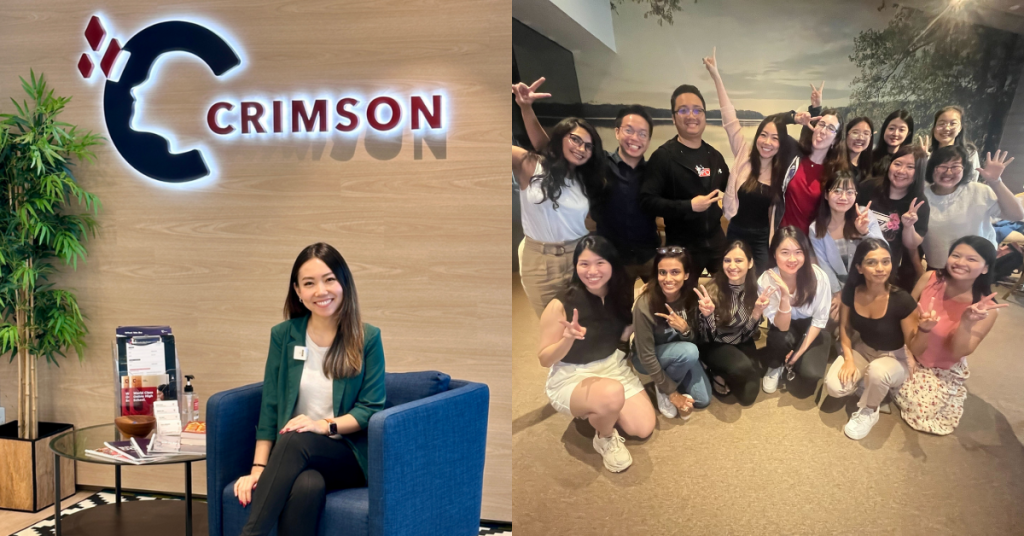
Growing up, I had fantasised about attending an Ivy League school. And while I’m perfectly satisfied with the schooling I received now, there are many other students who share that ambition.
Crimson Education (Crimson) was founded to help students fuel that ambition and eventually fulfil it.
Founded in 2013 by Jamie Beaton, Fangzhou Jiang, and Sharndre Kushor, Crimson helps students go through the tough and competitive admissions process for top universities, such as Ivy League schools and Oxbridge.
Eight years ago, Crimson expanded to Singapore, recognising the need for support among academically strong students locally.
“Many of these students had impressive academic records but struggled with other crucial parts of the admissions process, like extracurriculars, personal statements, and interviews,” they shared with Vulcan Post. “We saw an opportunity to help these students stand out and maximise their chances of getting into their dream universities.”

Why Singapore?
Speaking to Vulcan Post is Joanne Gao, Crimson Education’s Regional Manager for Singapore, Malaysia, the Philippines, and Myanmar.
Singapore’s dedication towards education might’ve made it a prime location for Crimson Education to expand into. After all, the education system here is very results-driven, with a big focus on academic excellence.
Beyond the students themselves, Singaporean parents can also be quite involved in their children’s education. This may be a good thing, considering that they’re the ones who would likely pay for Crimson’s services.
Yet, when they first entered the Singaporean market, there was a stigma around getting help with university admissions.
But over time, Crimson’s impressive acceptance results began to speak for itself.
“When it comes to success rates, a large percentage of our students in Singapore have achieved their university goals, with many gaining acceptance to their dream schools,” Joanne stated. “In fact, our success rate in Singapore is on par with, if not surpassing, other regions.”
How does it work?
Crimson’s services go pretty in-depth, guiding students from university selection and test preparation to personal statements, extracurricular profile building, and interview practice.
First, the team gets to know students’ strengths and goals, then helps them build a tailored list of schools they should apply to.
“This is also when we identify their unique hook—their personal narrative that will make them stand out to admissions officers and spark their interest,” Joanne said.
Next is the preparation stage, where students select and enhance their extracurriculars, from school societies to independent capstone projects like launching an app or website.
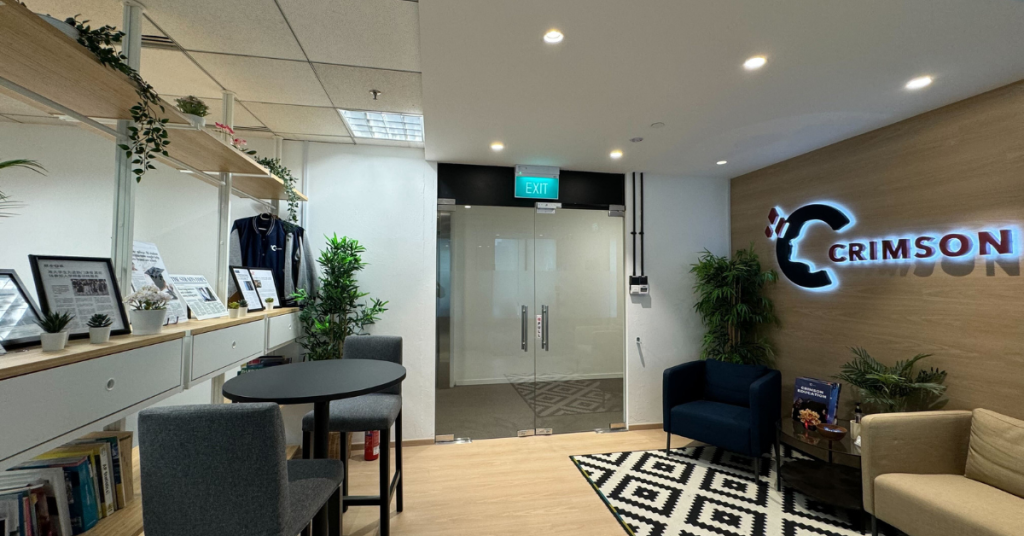
They also provide SAT/ACT preparation and support to help students maintain strong grades in school through their tutoring services.
Finally, during the application stage, Crimson helps students assemble and optimise their applications within the constraints.
Throughout this journey, students are paired with at least four mentors, each specialising in a different area.
These mentors include former admissions officers and consultants who’ve graduated from top universities in the US and UK.
Who’s it for?
Crimson’s services are typically used by students three to four years before they plan to apply.
This gives them time to build a strong profile without feeling overwhelmed by balancing academics and the other commitments needed to stand out.
“Our youngest student is 11 years old, and through our Crimson Rise programme, we help younger students discover their interests while also building key soft skills like leadership, time management, and project management,” she said.
The team doesn’t vet students, but they do offer a free consultation where they assess the student’s profile, motivation, and goals.
“During this session, we’ll give them a realistic idea of the schools they could aim for with our support,” she said. “It’s a way for both sides to get on the same page and ensure expectations are clear before making a commitment.”
The pricing for Crimson’s services ranges from S$10,000 to S$30,000 per year. The cost varies depending on factors such as the number of schools students are applying to and which ones.
For talented students without financial means, the startup has developed a Crimson Access Opportunity, which has helped three students in Singapore.
Recently, the startup launched the Crimson 10 Overseas Education Scholarship in Singapore, where they have selected two Singaporean recipients to receive over S$100,000 worth of admissions consulting services in total.
How is the system localised for Singaporeans?
To familiarise themselves with the Singaporean landscape, the team hired local staff who knew the ins and outs of the education system.
They also had to understand some of the unique local considerations, such as National Service, which impacts when and how students apply to universities abroad.
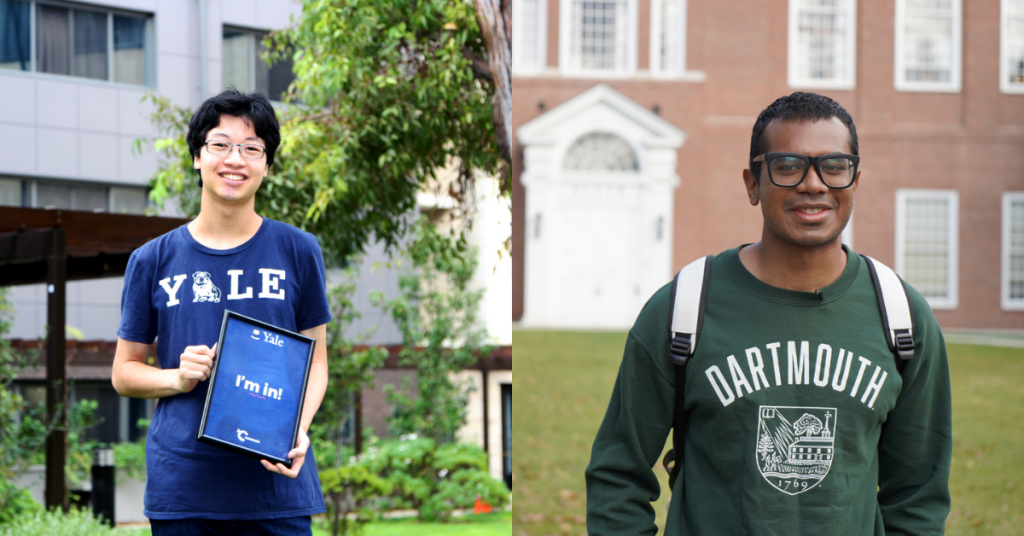
With that understanding, they offer localised resources to Singaporean students, such as e-books and webinars covering topics like National Service (NS) and which medical schools are recognised by the Singapore Medical Council.
When selecting mentors and tutors for Singaporean students, the team looks for two main qualities. First, they need to have solid academic credentials, typically from top universities.
“But just as importantly, they need to be able to connect with students on a personal level,” Joanne said. “It’s not just about helping with academics; it’s about guiding them through the entire application process and making sure they feel supported every step of the way.”
Currently, the Singapore team comprises approximately 40 people.
What about the mental toll?
College prep is not an easy journey, though, even with mentors around to help. High achievers in particular could place very high expectations on themselves, leading to stress and burnout.
Crimson understands this. To help students strike a healthy balance between academic ambition and personal well-being, they’ve launched a pilot programme in partnership with Mind Culture.
“It’s a pre-recorded workshop series called Self-Discipline and Resilience: A Toolkit for Teens’ Mental Wellness, designed to equip students with strategies to improve both their academic performance and mental health,” Joanne explained.
The programme is available to every Singapore student who signed up for Crimson’s programme alongside their regular offerings.
What’s next for Crimson?
Crimson Education recently closed S$53.5 million in its Series D Funding Round, cementing its status as a unicorn startup.
This confidence from investors further solidifies the team’s position as the go-to expert for students aiming for top universities in the US and UK.
“We want to be the name that parents and students think of first when they’re looking for help to get into Ivy League schools, Oxford, Cambridge, and other prestigious institutions,” Joanne said.
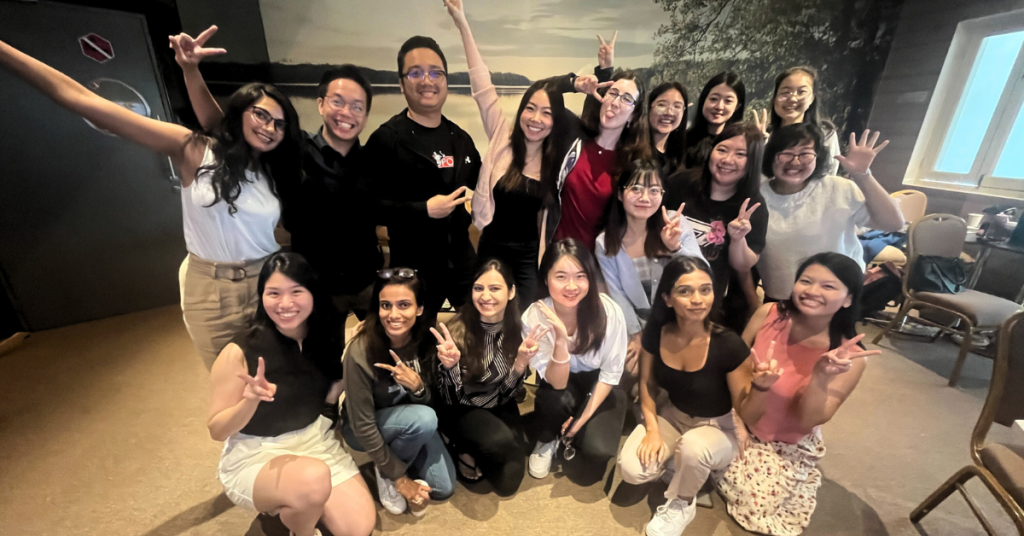
These days, though, there has been a shift in how academic achievements and university prestige are perceived. While top universities remain highly respected, many employers are increasingly placing value on experience, practical skills, and real-world knowledge.
But while Joanne recognises this changing mindset, she believes there will still be a place for Crimson’s services.
“Prestigious universities still carry significant weight in many sectors,” she said. “The reason for this is clear: employers understand the level of commitment, intellectual rigour, and discipline required to gain entry to and succeed at these leading institutions.”
She elaborated, “It’s not just about the brand—it’s about what that degree represents: a proven ability to excel in a challenging, high-pressure environment, alongside a strong work ethic and the capacity to handle complex tasks.”
Instead of working against this changing landscape, Crimson sees it as an opportunity.
While gaining entry to top universities has been central to Crimson’s brand, their mission has always been broader—to foster holistic development amongst students.
“This shift in employer priorities aligns with Crimson’s strengths—supporting students in creating not only competitive university applications but also diverse, impactful profiles that stand out across any field,” Joanne concluded.
Also Read: This Microsoft Copilot workshop convinced me that AI can help content creators, here’s how
Featured Image Credit: Crimson Education
3 benefits your tech startup will gain from joining MRANTI’s Supercharger Series, explained
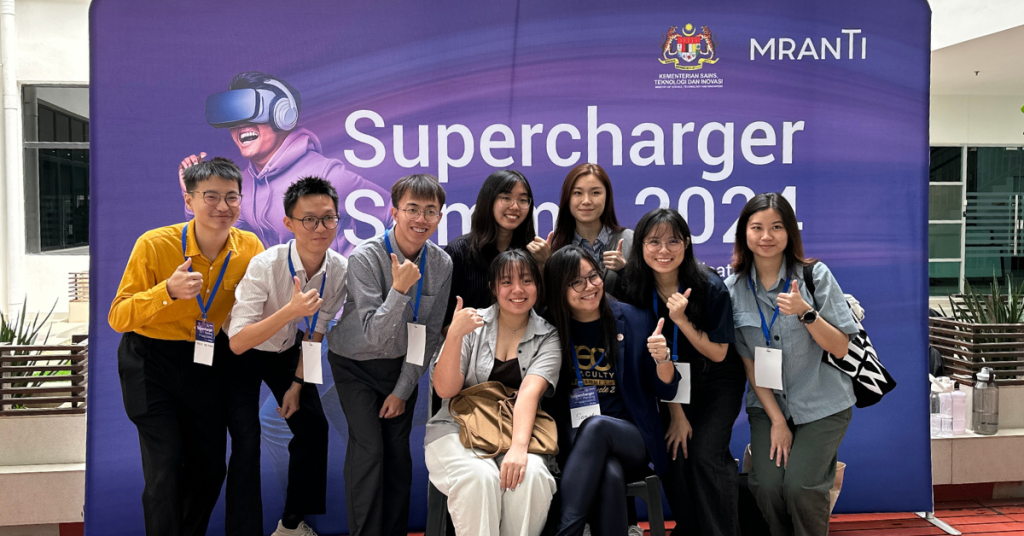
[This is a sponsored article with MRANTI.]
It’s been a pretty good year for the Malaysian innovation scene.
We’ve seen exciting ideas brought to life like BoomGrow’s 5G-connected vertical farm and Brikoole (“breathable bricks” to reduce air conditioning) that won the national James Dyson Award 2024.
Of course, achieving these feats comes with its own set of challenges, such as funding gaps and the resources for research and development (R&D). But Malaysian startups and entrepreneurs don’t have to face these challenges alone.
The government has various programmes available to help you grow and turn your bold ideas into innovative tech solutions, like the Supercharger Series.
What is the Supercharger Series?
It’s a free programme under the Malaysian Research Accelerator for Technology and Innovation (MRANTI) with the objective of fast-tracking the commercialisation of startup R&D projects.
In simpler terms, this programme helps turn your research and ideas into market-ready solutions, faster and more effectively.
This is done by connecting your startups with key industry professionals like innovators and researchers, and allowing you to explore more funding opportunities.
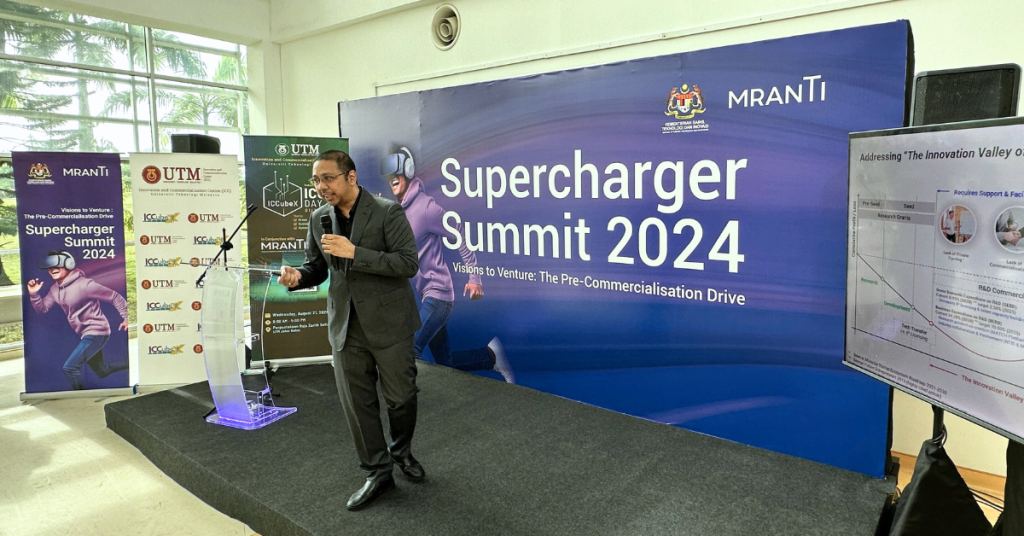
But what benefits do Malaysian startups gain from joining the Supercharger Series?
1. You’ll be able to future-proof your startup’s tech innovations
In today’s fast-paced tech world, staying ahead means more than just keeping up; you have to constantly be innovating.
By aligning with Malaysia’s strategic priorities (as outlined in the Malaysian Grand Challenge) startups will be at the forefront of industries set to define the next generation of innovation. This includes fields like agriculture, healthcare, food security, and smart technology.
The Supercharger Series focuses on these industries too, so startups will be more technologically adept at creating solutions for current and future problems.
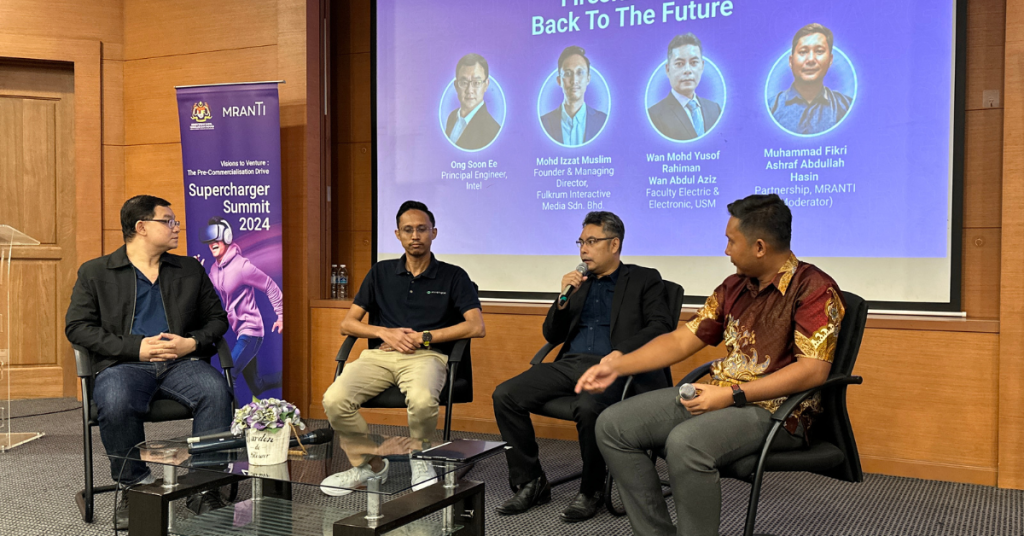
For example, as part of the Supercharger Series’ efforts, MRANTI partners with Universiti Malaysia Sabah (UMS) to provide startups with up-to-date knowledge and expertise on food security and drone technology. Such collaborations equip startups to develop cutting-edge solutions and position themselves as industry leaders.
2. You’ll gain access to MRANTI’s strong network of expertise and resources
The Supercharger Series acts as a bridge between academic research and the commercial world, connecting you with Malaysia’s top experts in R&D and innovation.
This support helps you fine-tune your strategies and fast-track your tech development.
Whether it’s improving a prototype, overcoming regulatory challenges, or planning your market launch, the program provides the guidance you need to move forward with confidence.
Mohd Izzat Muslim, founder of Fulkrum Interactive Media, shared, “The Supercharger Series stands out for being much more hands-on and practical.” Izzat used to struggle with market penetration and effectively utilising funds from grants until he learnt new strategies from the programme.
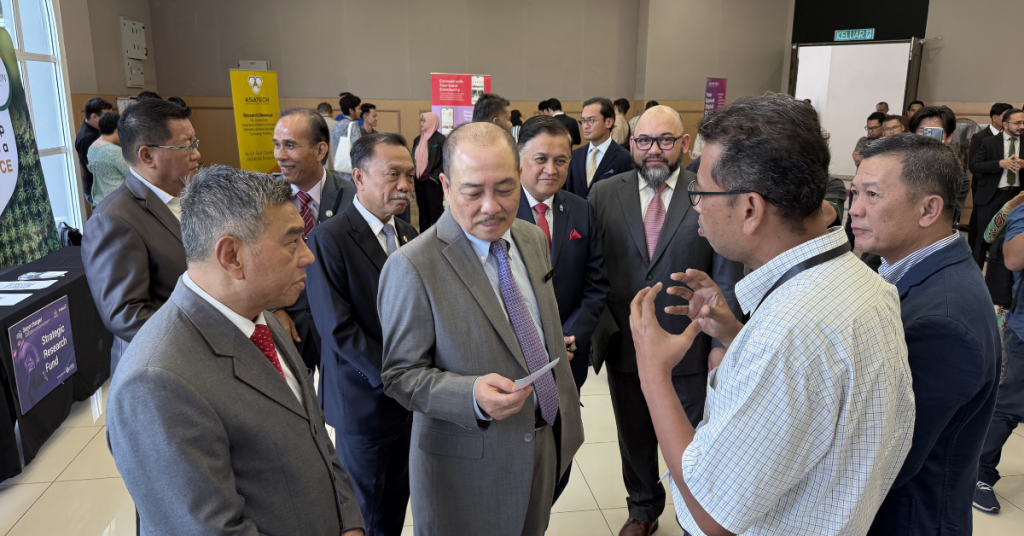
3. You’ll be on the fast track to commercialising your solutions and business ideas
Under the Supercharger Series, MRANTI offers a more in-depth bootcamp called the Supercharger R2C (Road-to-Commercialisation) Bootcamp.
Designed for startups in the pre-commercialisation stage, this bootcamp starts with a three-day workshop and continues with a three-month facilitation programme. This hands-on guidance will equip your startup with the know-how to bring your products and services to market.
Key commercialisation topics you’ll learn here include defining your value proposition, validating your target market, addressing intellectual property and regulatory considerations, and developing a launch strategy for your innovation.
Startups that have benefitted from this are bootcamp alumni like Qmed Asia (a healthcare tech startup), Agiliux (an insurance tech startup), and Life Origin (a foodtech startup).
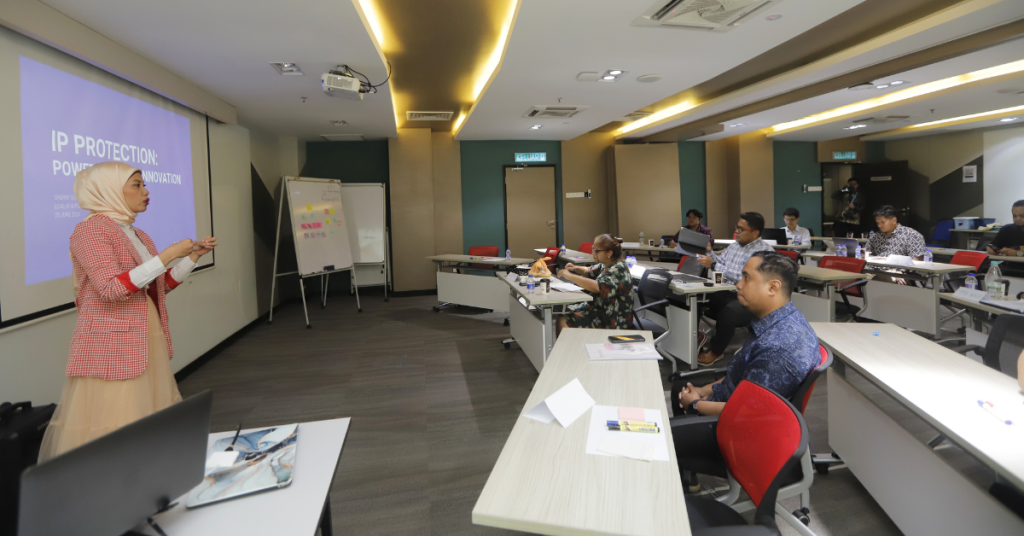
To join, you can keep an eye out for announcements on the next Supercharger R2C Bootcamp here.
-//-
At the moment, MRANTI’s Supercharger Series is held in key innovation hubs such as Kuala Lumpur, Penang, Johor, Sabah, and Sarawak. But they’re committed to expanding the programme’s reach in more locations based on the needs of the startup community.
“Our goal is to create equal opportunities for startups across Malaysia, supporting local ecosystems and facilitating greater nationwide impact,” MRANTI’s team told us.
This year’s Supercharger Finale will be held at the I-Nation Global Summit 2024 on December 3, where participants will get a chance to learn commercialisation strategies from Dr. Hamed Motaghi from Quebec University, Canada.
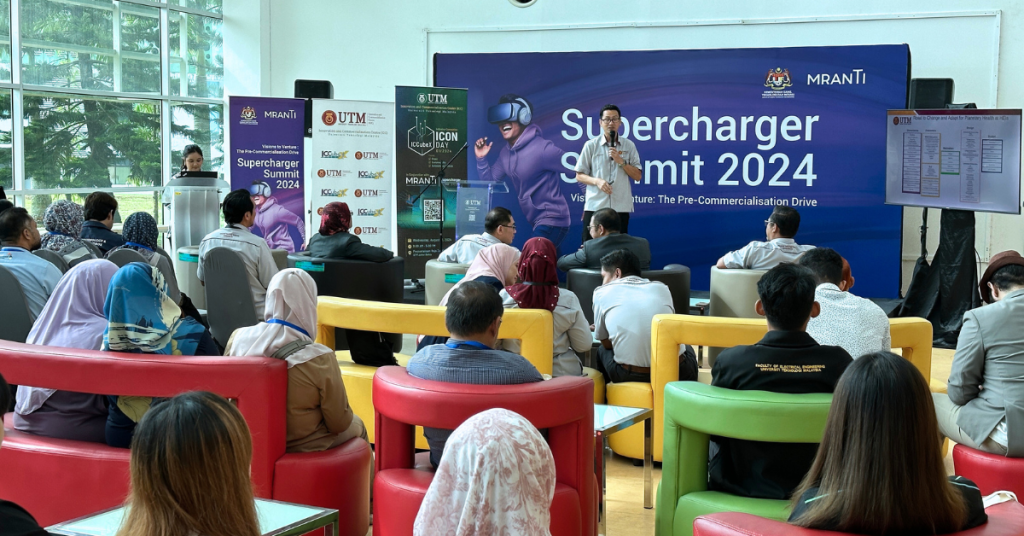
The session is scheduled for 4PM to 5PM at Connexion Convention Centre, Bangsar. Admission is free, but you should secure your seats now before tickets run out.
- Learn more about the Supercharger Series here.
- Read other articles about MRANTI’s past efforts here.
Also Read: Mega sales are coming up in M’sia, here’s how to ensure that your parcels don’t go missing
Featured Image Credit: MRANTI
Malaysia’s semiconductor industry is ramping up, here are the companies that are hiring now
[This is a sponsored article with Sidec.]
With the rise of generative artificial intelligence (AI), growing demand for the Internet of Things (IoT), as well as electric vehicles (EVs), there’s now more need for advanced chips.
It’s great news for Malaysia as we’re the sixth largest exporter of semiconductors, with the industry accounting for 40% of the nation’s export output. We currently command 13% of the global market for semiconductor packaging, assembly, and testing.
But a key challenge the industry faces is a shortage in skilled talents and lack of research and development (R&D). Without these, we’ll start to lose our competitiveness on the global stage.
This is where the Malaysia Semiconductor Recruitment Day 2024 comes in. Organised by Selangor Information Technology and Digital Economy Corporation (Sidec), the inaugural event saw over 2,000 attendees and 3,000 job screenings for 25 companies.
But don’t fret if you missed the event. Here is a list of several leading Malaysian companies in the electrical and electronics (E&E) industry with job openings.
Semiconductor companies
1. ViTrox
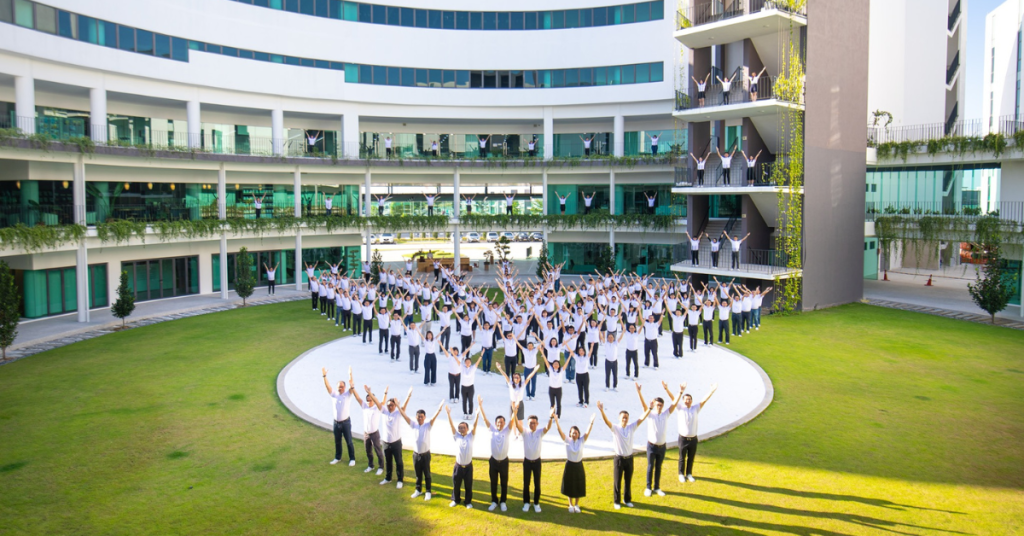
ViTrox Corporation Berhad (ViTrox) is a leading global manufacturer of automated vision inspection systems. Established in 2000 and listed in 2004, ViTrox exports its products to over 24 countries.
Notably, it has been recognised on Forbes Asia’s Best Under A Billion list for three consecutive years (2021-2023), showcasing its resilience amid global challenges such as inflation and rising funding costs.
In 2020, ViTrox launched ViTrox Academy to provide technical and soft skills training. Following this, in January 2023, it introduced ViTrox College, offering diploma programmes in Electrical and Electronic Engineering, Mechatronics Engineering, and Electronic Engineering to bridge the gap between academia and industry.
Naturally, ViTrox is on the lookout for fresh graduates to join their growing team.
Available positions:
- Executive Assistant
- Technical Recruiter
- Software Application Engineer
- R&D Mechanical Design Engineer
- Technical Support Engineer
- Research Development Software Engineer
- Circuit Design Engineer
Check them out here.
2. SkyeChip
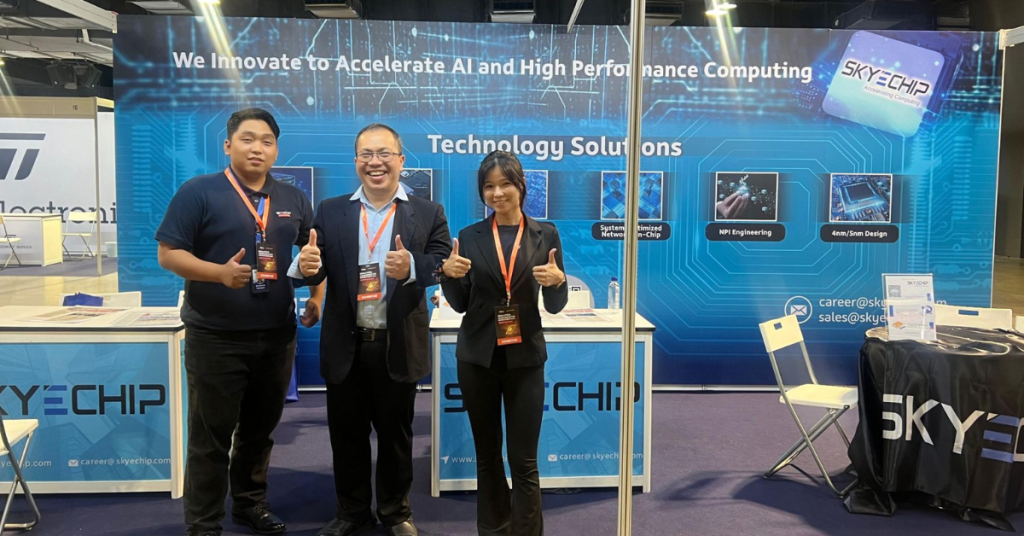
SkyeChip is a Malaysia-based design company founded in 2019, specialising in Intellectual Property (IP) and Integrated Circuit (IC) solutions for artificial intelligence and high-performance computing.
Their team includes industry veterans with over 15 years of experience from companies like Intel and Motorola, and they hold more than 80 US patents.
The company is also collaborating with universities like Universiti Teknologi Malaysia (UTM), Universiti Putra Malaysia (UPM), Universiti Malaysia Perlis (UniMAP), Multimedia University (MMU), Universiti Tunku Abdul Rahman (UTAR), and Universiti Sains Malaysia (USM) to develop industry-ready talent.
With plans for an IPO and an over RM1 billion valuation by 2025, SkyeChip is on a growth path and they’re looking for skilled talent to join their team.
Available position:
- Senior Static Timing Analysis Engineer
Check it out here.
3. QES
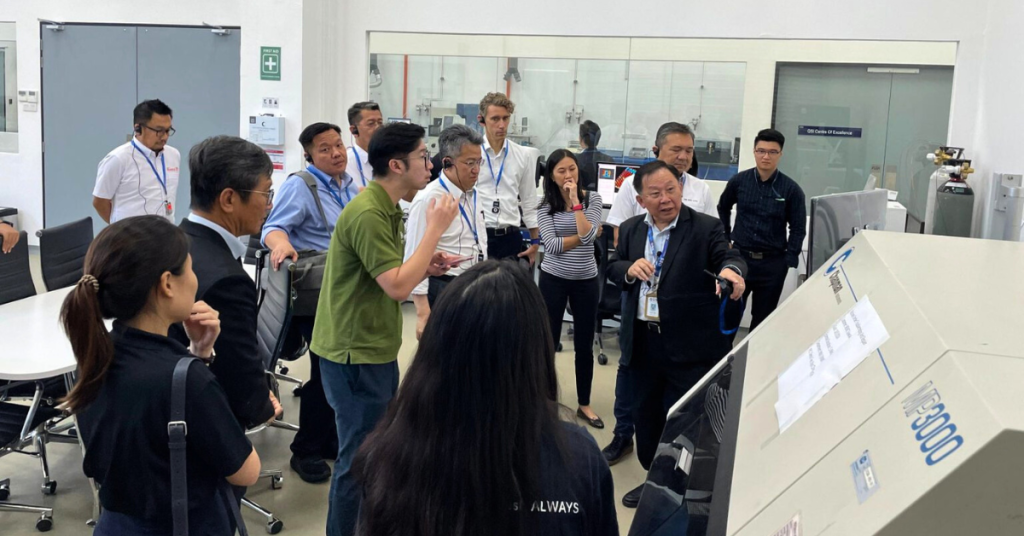
Founded in 1991, QES Group has grown into a leading integrated solution provider, specialising in manufacturing, distribution, and engineering services for inspection, testing, measurement, and automated handling equipment. The company focuses on offering customer-driven solutions to meet diverse industry needs.
QES operates across various sectors, including semiconductor, automotive, electronics, petrochemical, R&D, and renewable energy.
With over 400 experienced staff and strong global partnerships, they provide tailored solutions, having installed over 13,800 pieces of equipment in ASEAN markets.
QES is committed to continuous innovation, sustainability, and digitalisation, aligning with its corporate mission and ESG goals.
Available positions:
- Service Engineer (E&E, mechanical, or mechatronic engineering)
- Service Engineer (chemistry or chemical engineering)
- Service Engineer (XRF Product)
- Software Engineer (computer science or information technology)
- Senior Electrical Engineer
- Senior System Engineer
- Senior Mechanical Engineer
- Production Supervisor (semiconductor machine assembly)
- Production Assistant (semiconductor machine assembly)
- Technician
- Assistant Lab Manager/Senior Chemist (analysis and laboratory testing)
- Assistant Sales Manager/Sales Manager
- Sales Engineer
- Senior Sales Executive
- Assistant Business Development Engineer
Check them out here.
4. SyMMiD
SyMMiD specialises in Application-Specific Integrated Circuit (ASIC) development and custom IC design services. With world-class expertise in analogue, digital, mixed-signal, and high-voltage IC design, the company provides tailored ASIC solutions for the automotive, industrial, and consumer markets.
They provide flexible engagement options, where clients can either outsource entire chip designs or focus on specific aspects. This is supported by both onsite or offsite services.
Their global client base spans China, Taiwan, the UK, Germany, and the US.
Available positions:
- Place & Route Engineer
- Custom Layout Design Engineer
- Analogue Mixed Signal IC Design Engineer
- Digital IC Design Verification Engineer
Check them out here.
5. STMicroelectronics
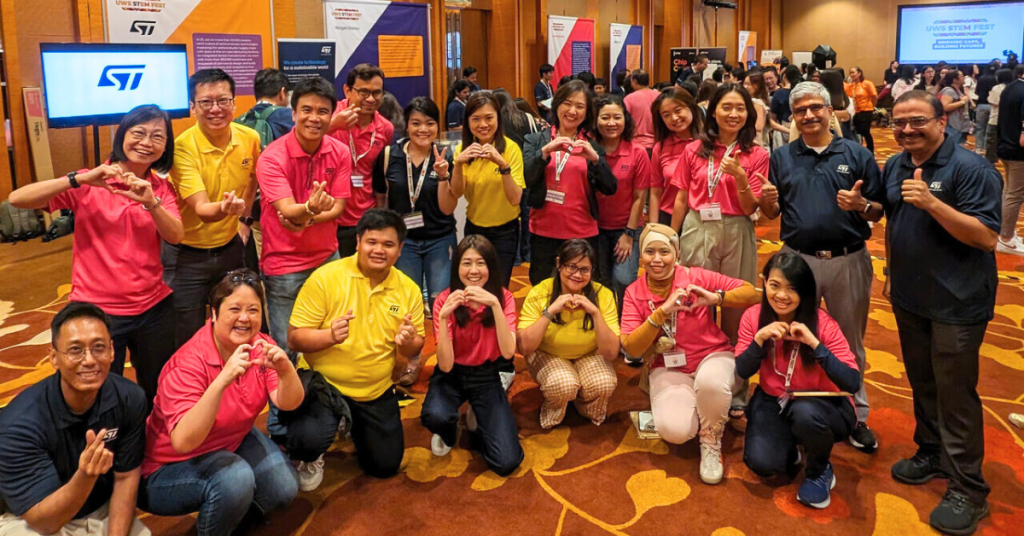
STMicroelectronics is a global leader in semiconductor technology, delivering energy-efficient solutions that power everyday electronics. From electric cars and smart homes to mobile devices and IoT products, ST’s technologies enable smarter and more sustainable living.
Headquartered in Germany, they have offices in Malaysia, China, the US, Brazil, Algeria, and Finland.
Their extensive portfolio supports sectors such as smart mobility, power and energy, and cloud-connected autonomous systems.
With 14 manufacturing sites across Europe and Asia—seven for wafer fabrication and seven for assembly and testing—ST is well-positioned to drive the semiconductor industry forward.
Available positions:
- Intern
- BGA Engineer
- Process Engineer
- Global Credit Risk Manager
- People Service Specialist (payroll)
- Equipment Engineer
- Central R&D Automation Engineer
- RMR Network Engineer
- Senior Maintenance Engineer
- Site Information Security Office
- Process Development Technician
There are many more positions being offered, check them out here.
6. MaiStorage
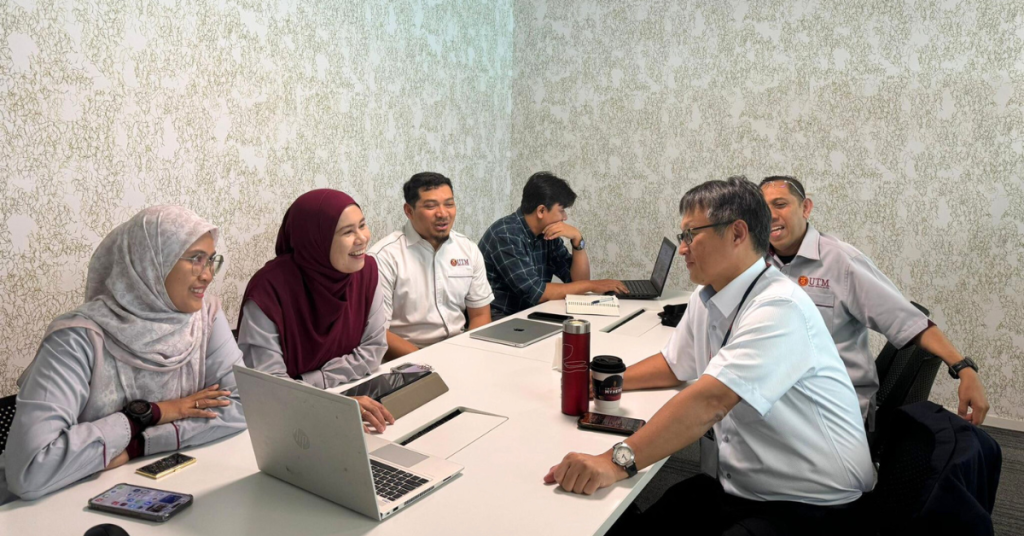
Founded in June 2024 in Puchong, Selangor, MaiStorage Technology (MaiStorage) is a new IC startup and the principal hub for the Taiwan founded, Phison Electronics Corporation (established 2000).
Founded by Dato KS Pua, the company is a subsidiary of Phison’s Pascari (Enteprise Data Storage), aiDAPTIV+ (an LLM solution), and automotive solutions, while developing local engineering capabilities.
MaiStorage aims to drive innovation in NAND storage technology by eventually designing and manufacturing advanced NAND controller ICs and storage modules for data centres, AI, and the automotive industry.
Did you know: NAND storage is a type of non-volatile memory that retains data without power, commonly used in SSDs, USB drives, and memory cards.
Source: TechTarget
The company leverages Phison’s 24 years of expertise in NAND controller technology, ensuring a solid foundation for success and growth in the storage sector.
Available positions:
- AI Engineer
- Firmware Design Engineer
Check them out here.
7. Infineon Technologies
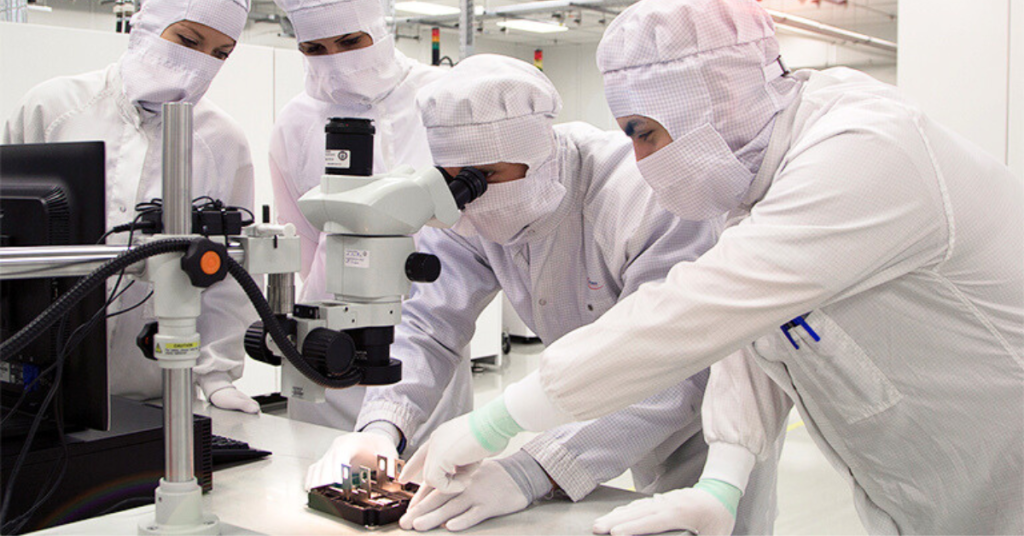
Infineon Technologies (Infineon) is a global leader in semiconductors for power systems and IoT, driving decarbonisation and digitalisation through solutions for energy efficiency, clean mobility, and smart IoT.
With over 58,000 employees from more than 100 countries, the company offers a supportive work environment, work-life balance, and long-term career growth.
According to the company’s annual report In 2023, Infineon generated over €16 billion (~RM75 billion) in revenue and operates 69 R&D and 17 manufacturing locations globally. Key sectors include automotive, industrial power, and connected secure systems.
Available positions:
- Graduate Technical Programme
- Sales Operations Competence Centre Graduate Trainee
- Staff Specialist Data Excellence
- Senior Staff Specialist MES Expert
- Senior Engineer Component Verification
- Industrial Trainee HR Talent Acquisition
- Business Intelligence Data Warehouse Developer
- Senior Engineer Failure Analysis
- Senior Specialist SharePoint
- Principal Engineer Mask Design
- Senior Engineer Factory Integration
There are many more positions being offered, check them out here.
IT & robotics companies
8. AppAsia
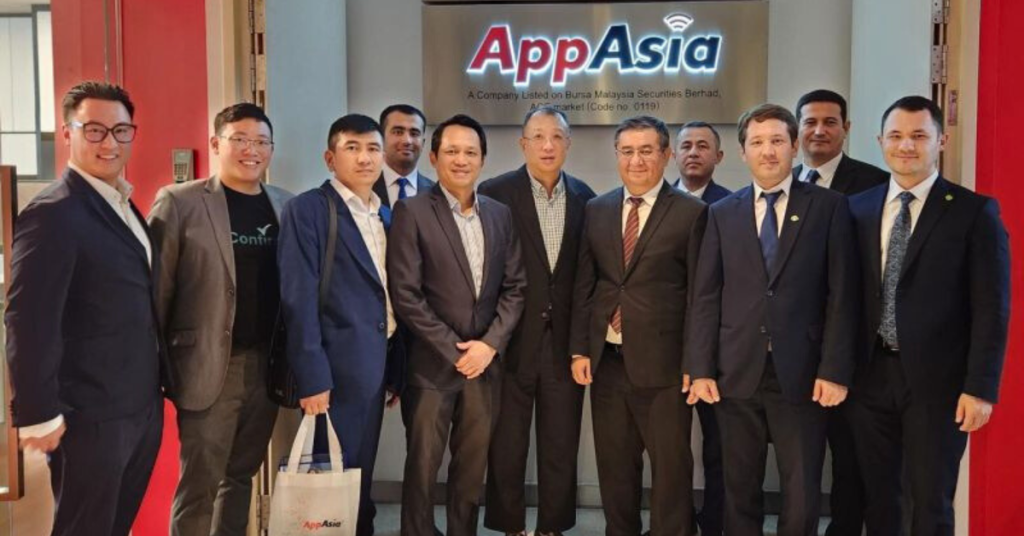
Formed in 1984, AppAsia Berhad (previously known as Extol MSC Berhad) is a Malaysian mobile content and applications company.
Their services include e-invoicing, blockchain solutions, an ecommerce platform, mobile apps, mobile games, and cloud solutions. Currently, the company operates multiple ecommerce websites and has seven subsidiaries, including AppAsia Studio and AppAsia Mall.
One service that AppAsia is better known for is its eConfirm.my digital platform developed together with Malaysian Institute of Accountants (MIA). It’s an industry-wide electronic bank confirmation platform used by 29 banks, such as Malayan Banking Berhad and OCBC Bank.
The firm was listed on Bursa Malaysia’s ACE market in 2006 and remains a publicly listed company to this day. More recently, it entered into a memorandum of understanding (MoU) with Taiwan’s CMSC, Inc. to set up a joint venture entity for integrated circuit design in Malaysia.
Available positions:
- Web Designer
- Project Consultant
- System Administrator
- Technical Lead
- Business Development Executive (IT Solutions)
- Graphic Design Intern
- Business Intern
Check them out here.
9. HCL Technologies
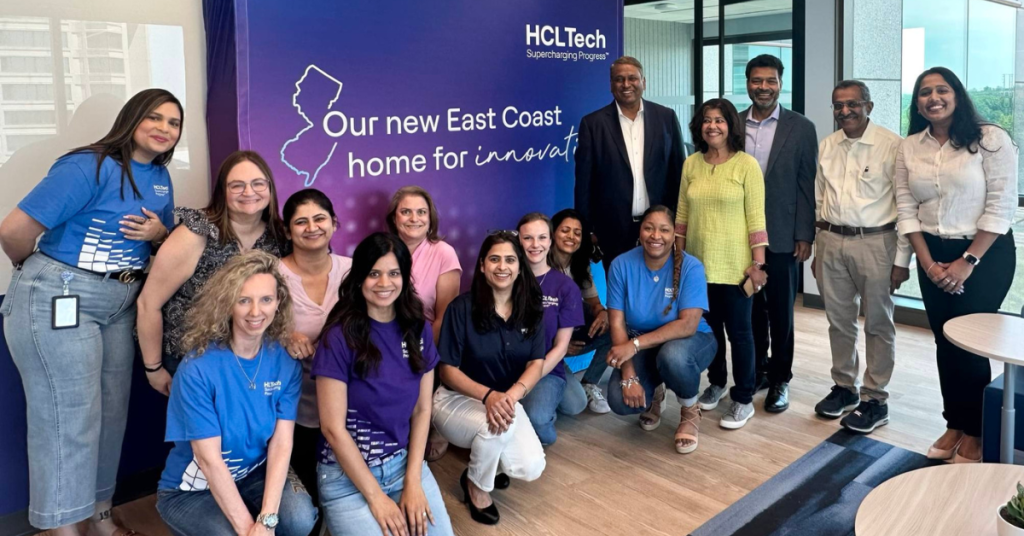
HCL Technologies (HCL Tech) is a global technology company with over 219,000 employees in 60 countries, offering digital, engineering, cloud, and AI-driven solutions.
With a portfolio spanning technology services and products, HCLTech serves key industries like financial services, manufacturing, healthcare, technology, telecom, retail, and public services.
For the year ending June 2024, the company reported US$13.4 billion in revenue in FY24. HCLTech is well-positioned to help businesses thrive as generative AI reshapes industries.
Available positions:
- Network Engineer
- Korean or Japanese Language Trainer
- Desk-side Support Technician
- Dotnet Developer
- Solutions Architect
- L3 Networking Support Engineer
- Cybersecurity Engineer
- Service Desk Analyst
- Senior Project Manager (bancassurance)
- Cobol Programmer
There are many more positions being offered, check them out here.
10. Renesas Electronics Corporation
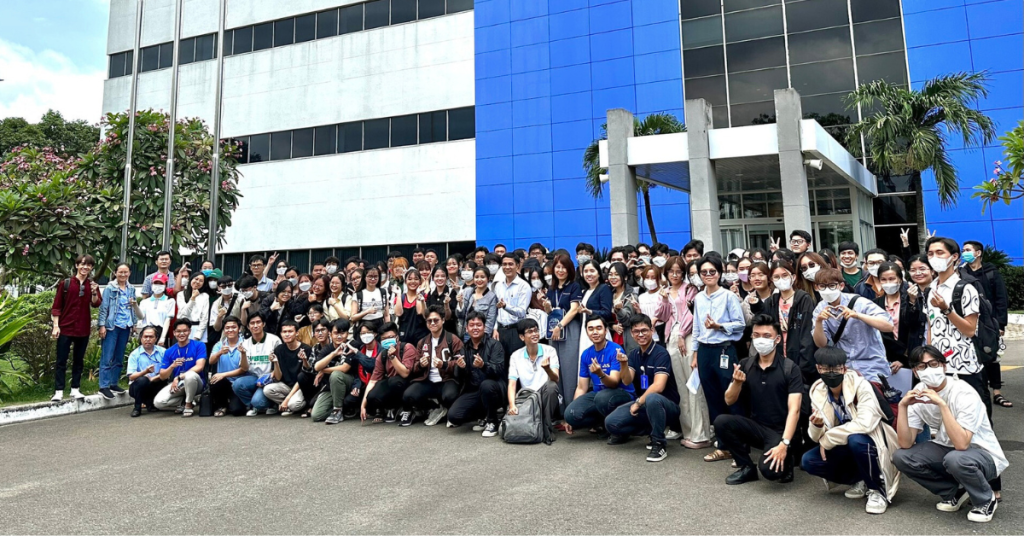
Incorporated in 2002, Renesas Electronics Corporation (Renesas) is a semiconductor manufacturer headquartered in Tokyo, Japan.
The firm is a global leader in microcontrollers, analogue, power, and System on Chip (SoC) products that drive innovation in the automotive, industrial, and IoT fields.
Now worth US$35 billion, the Japanese chipmaker aims to reach a market value of approximately US$100 billion by 2030. This is driven by a series of international acquisitions thanks to Hidetoshi Shibata, its 51-year-old CEO with a background in banking.
Just this August, Renesas acquired Australia-listed software firm Altium Ltd and announced that they’ll be creating an innovative electronics system design and lifecycle management platform. The platform hopes to enable more seamless digital processes to boost overall productivity.
Fun fact: In 2009, Renesas was the world’s third largest chipmaker in sales after Intel and Samsung Electronics.
Source: The Japan Times
Available positions:
- HR Assistant and Executive
- HR Project Coordinator
- Supply Chain Planner
- Manufacturing Planner
- Staff Sales Ops Analyst
- Customer Service Representative
- Analogue IC Layout Design Engineer
- Senior Process Engineer
- SAP CPI Developer
- EDI Analyst Programmer
There are many more positions being offered, check them out here.
11. UST Global
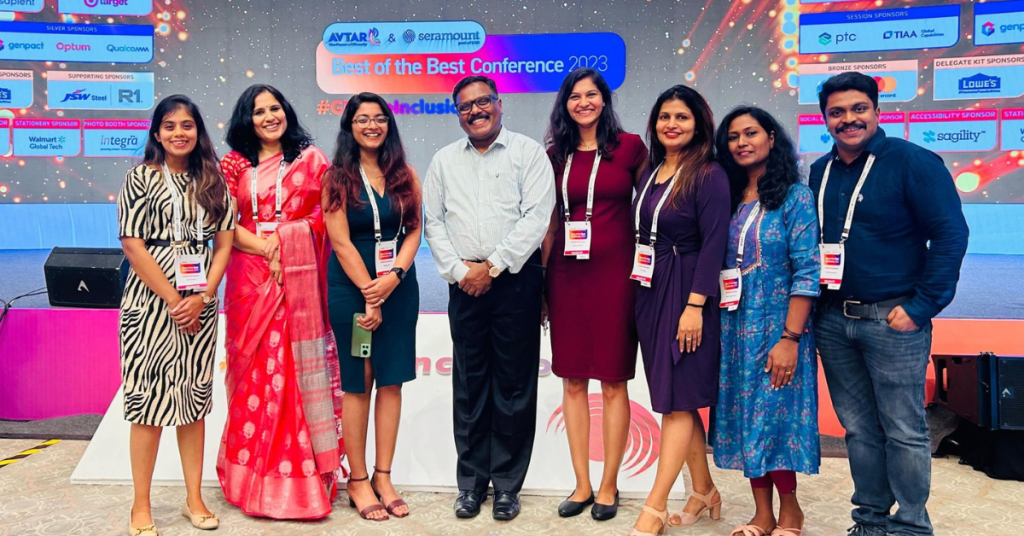
UST Global, one of the largest IT and engineering services companies in Malaysia, has been helping businesses worldwide transform through technology for over 20 years.
The international firm employs more than 23,000 workers across the globe and collaborates with clients ranging from industries like healthcare and manufacturing to financial services and semiconductors. Some of its more notable clients include Goldman Sachs Group and JPMorgan Chase and Co.
Earlier this year, the company was exploring a US IPO and may seek to raise at least US$500 million in capital. At the time of writing, UST Global is valued at more than US$1 billion.
Available positions:
- Administrative Assistant and Executive
- Business Development Manager
- Java Developer
- IT Project Manager
- Java AWS Developer
- DFT Engineer
- Embedded Linux Engineer
- Design Verification Engineer
- SAP SD Consultant
- Senior Automation Test Engineer
There are many more positions being offered, check them out here.
-//-
To thrive in this industry, having a strong knowledge foundation in one of the STEM disciplines is crucial.
Some skills you’ll need to have include attention to detail, data analysis and processing, and technical understanding of different processes and technologies.
Other than the ones we’ve highlighted, there are more semiconductor companies in Malaysia that are possibly hiring. So don’t limit yourself to just this list if you’re looking to start (or grow) a career in this booming trade.
With the nation’s goal of establishing at least 10 local companies in design and advanced packaging for semiconductor chips, more job opportunities are sure to follow suit.
Also Read: Mega sales are coming up in M’sia, here’s how to ensure that your parcels don’t go missing
Featured Image Credit: HCL Technologies
She quit engineering to study baking at Paris’ Le Cordon Bleu, now runs a Penang patisserie
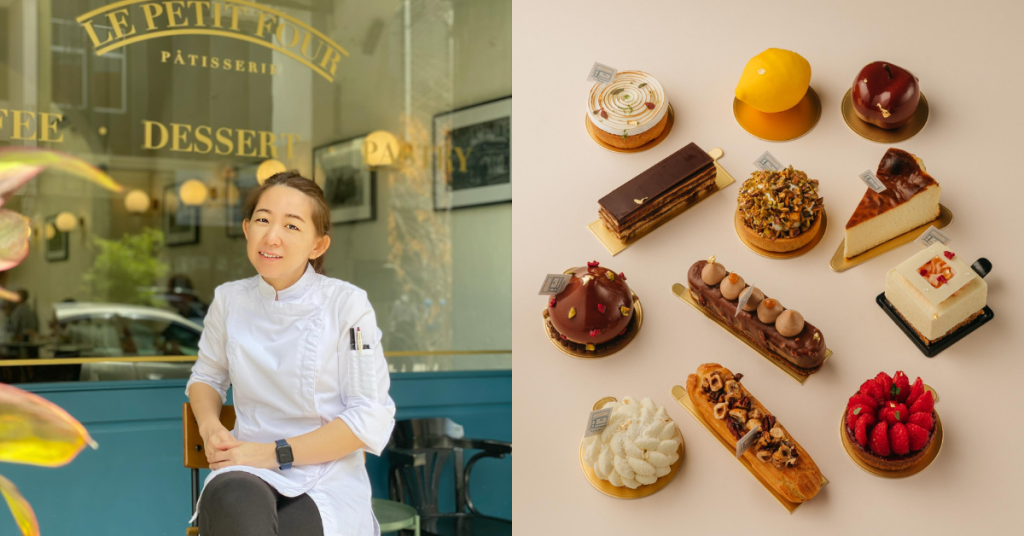
Hailing from Sungai Bakap, a small town on mainland Penang, Ooi Hooi Shing had followed the well-trodden path of becoming an electronic engineer. With her master’s degree, she worked at Intel for around five years.
However, her true calling lay somewhere else. The engineer had always loved baking, so much so that she would bake almost every week for family and friends.
So, at one point, she decided to pursue her dreams in Paris. In preparation, she even attended Alliance Française de Penang to pick up the Romance language.
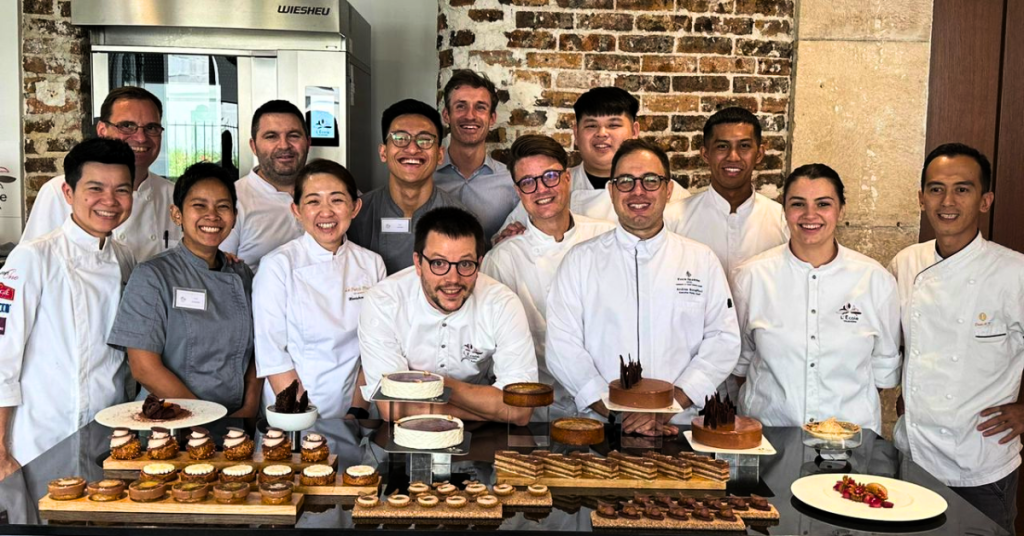
In May 2013, she left her job and headed to Paris to start her pastry journey.
Hooi Shing went on to obtain her Diplome de Patisserie in Le Cordon Bleu Paris. After the training, she did her stage in Shangri La Paris, in the pastry kitchen led by Chef Francois Perret.
Eventually, she went on to bring her expertise home to Penang, establishing Le Petit Four Patisserie.
Beginning humbly
Le Petit Four, which means the little oven, initially got its start as a “very small” cake vendor at Hin Bus Depot, an arts and events space in Penang.
“There was a day I met my friend, and she suggested sharing a table with her during the weekend market,” she recalled.
It was there that she met someone by the name of Mr Tan Shih Toe, who in turn showed Hooi Shing a place where she could set up a small kitchen.

Taking his recommendation, Le Petit Four Patisserie officially opened in 2016 at Hutton Lane. At that point, though, it was a small kitchen that could only accommodate one person.
Slowly and steadily, Le Petit Four began to grow, and in 2018, they upgraded to their current space in the heart of George Town.

Joining Hooi Shing on this journey was Elveen Tai, who takes care of the coffee bar and beverage menu.
But even though they’ve changed in terms of their space and capacity, some things stay the same.
“We never change in our philosophy,” Hooi Shing shared. “We strongly believe in passion, skillset, good ingredients, and taking every step of the process with love.”
Competing with the crowd
Having been a stalwart in the Penang patisserie scene for six years now, some even dub Le Petit Four to possibly be Penang’s most popular “cafe-bakery”.
In an interview with So Good magazine, Hooi Shing herself shared that before she started, Penang never quite had a proper French patisserie. As such, Penangites often had to travel to places like Kuala Lumpur for the real thing.

Speaking with Vulcan Post now, though, she shared that she doesn’t see Le Petit Four as a pioneer of patisseries in Penang. But with more and more pastry shops opening up in the region now, they certainly are one of the notable names.
That said, if you look up patisseries in Penang today, you will come across quite a number of well-established names. Hooi Shing believes that consistent quality across their creations is what keeps her patisserie competitive.

“Customer will come back eventually,” she said. “Trust the process.”
Growing the Penang patisserie scene
Going forward, Hooi Shing doesn’t have any big, ambitious plans, but rather aims to continue doing what they do now—French pastries and desserts that focus on quality.
To do this, she is sure to stay abreast of the current trends and techniques within the industry.
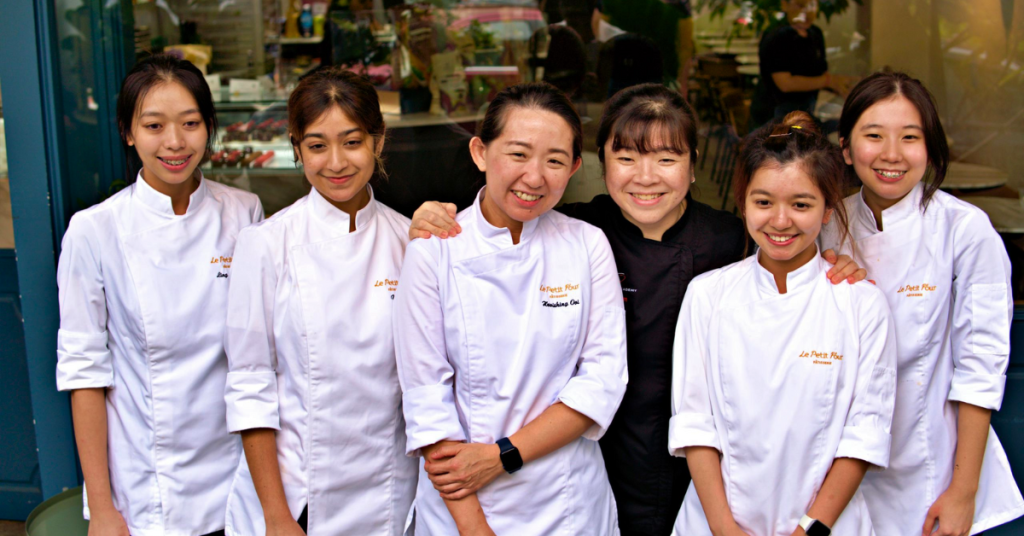
“As patissiers around the world continue to perfect [their craft], I am beginning to see many patisseries that have started to experiment with local ingredients,” she pointed out.
Picking up on this, Le Petit Four has also created a dessert that makes use of pulut hitam, combining French techniques with Malaysian flavours.
When asked about what her biggest challenges are, Hooi Shing shared something that many F&B entrepreneurs do—labour. Hiring someone who is truly passionate about what they do can be a pretty big ask.

That said, the Le Petit Four seems to have grown over the years, with seemingly many young chefs on the team.
In a way, the patisserie seems to have become an establishment that fosters local talents, growing Penang’s patisserie culture and craft.
Also Read: Mega sales are coming up in M’sia, here’s how to ensure that your parcels don’t go missing
Featured Image Credit: Le Petit Four
These sisters brought their mum’s 24 Y/O popiah legacy from Ipoh to KL, now has 6 outlets

“RM2,888 for a popiah? What kind of boujee popiah is this?”
That was exactly my reaction when I first stumbled upon the news of a popiah being sold for such premium pricing.
If you’ve ever had this humble Chinese spring roll that usually costs a few ringgit, you’d understand the shock.
It turned out to be a limited-edition creation (we will get into this later), born from a collaboration between Ipoh-founded popiah chain Bibi’s Popiah and Nimbus Restaurant in KL.

As I dug deeper, I discovered that there’s more to Bibi’s Popiah than just luxurious collaborations—it’s about a family legacy, a love for tradition, and a bold leap into modern food entrepreneurship.
From Ipoh to Klang Valley
Founded in 2000 by a woman affectionately known as Bibi, the original popiah stall in Ipoh, Dong Gu Ting, served only a handful of customers daily.

Over the years, however, Bibi perfected her recipes, sticking to fresh, handmade ingredients like self-prepared popiah skin and crispy keropok. Slowly but surely, the brand grew into a local favourite, selling around 1,000 popiah rolls daily.
Today, the business is run by her daughters, Perly Yuen and Yuen Yao Tong.
“Bibi is actually my mum’s name,” shared Perly, the 24-year-old co-founder.
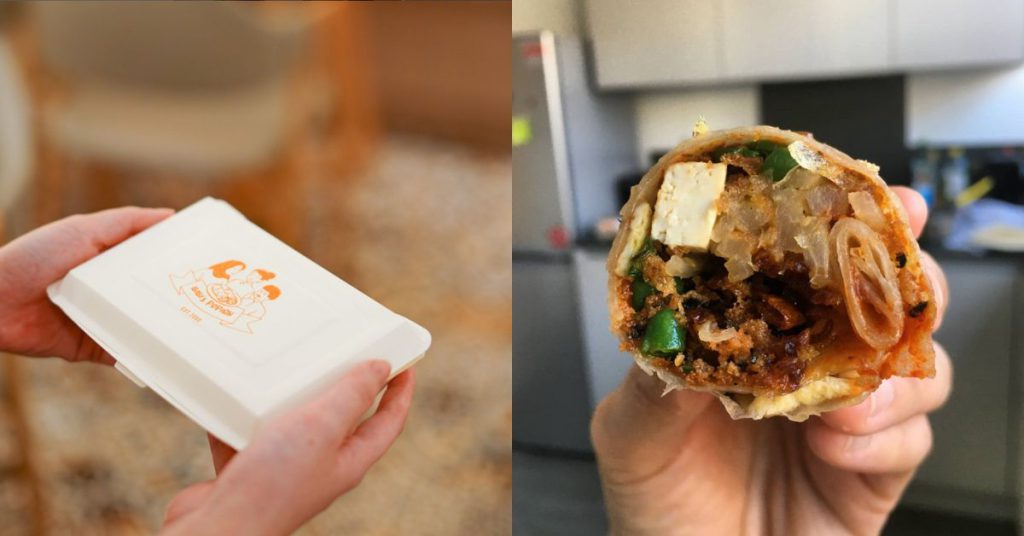
“She taught us from a young age to be passionate and hardworking in everything we do. She’s been through so much, from being a barber to selling chicken rice and finally settling on popiah.”
Perly and Yao Tong, who grew up helping at their mother’s stall, decided to expand the business in 2021 after Perly graduated.
Their first outlet in Subang SS15 paved the way for more locations in major Klang Valley malls, including Mid Valley, Sunway Pyramid, and 1 Utama.

“We’ve managed to open six outlets in just two years. My mum still runs the original stall in Ipoh. Expanding so quickly was our way of making Bibi’s Popiah accessible to everyone,” Perly explained.
RM2,888 popiah: What’s in it?
Now, back to the question: Why does this popiah cost more than a fancy dinner for two?

In collaboration with Chef Fred Choong from Nimbus Restaurant, Bibi’s Popiah created a version that redefines the traditional roll.
The RM2,888 popiah contains:
- Two Alaskan king crab legs, lightly steamed to retain their natural sweetness.
- Torched spring onions and deep-fried cordyceps flowers coated in truffle oil.
- Sweet, crunchy Ibaraki Keisui pear as a replacement for the usual sengkuang (turnip).
- A slathering of secret sauce unique to Bibi’s Popiah.
- Ossetra caviar from France and 24-carat edible gold leaf from Italy crown the creation.
However, this lavish version, wrapped in Bibi’s signature handmade skin, was only available for a limited time.
It’s unclear how this exclusive popiah took off, and whether there were people actually ordering it, but it certainly created some buzz for the brand.
Expanding the popiah market
Beyond viral luxury popiah, Bibi’s Popiah is staying true to its roots, continuing to serve traditional recipes alongside newer offerings.
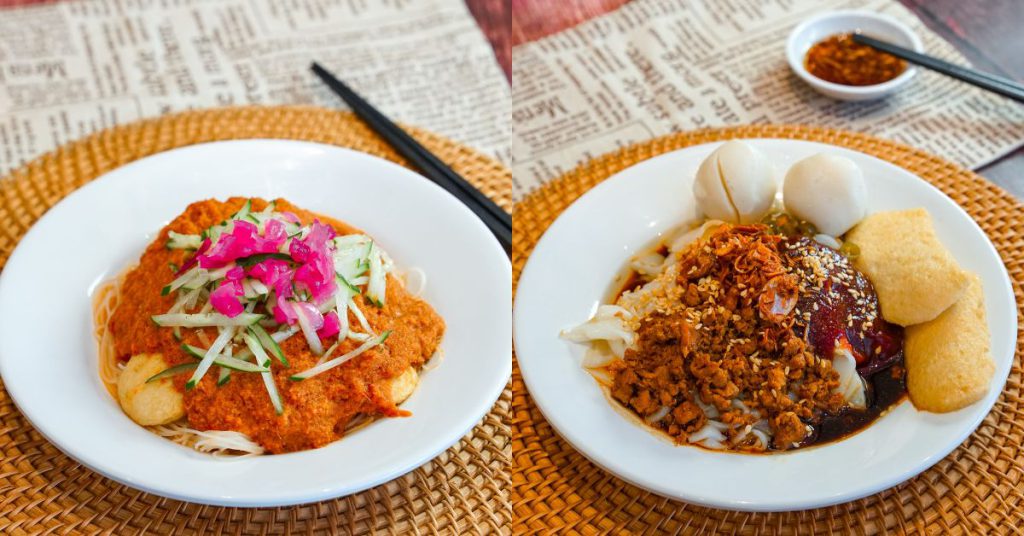
“We’ve added other Ipoh delicacies to some of our outlets,” Perly shared.
“It’s about preserving traditional methods. These dishes take time and effort to prepare, and fewer people are making them today. We want our customers to experience authentic flavours without the hassle of travelling to Ipoh.”
The sisters also emphasised quality and consistency as key to their success. “We still make everything fresh every day. There’s no special strategy—we just listen to customer feedback and improve where we can,” said Perly.
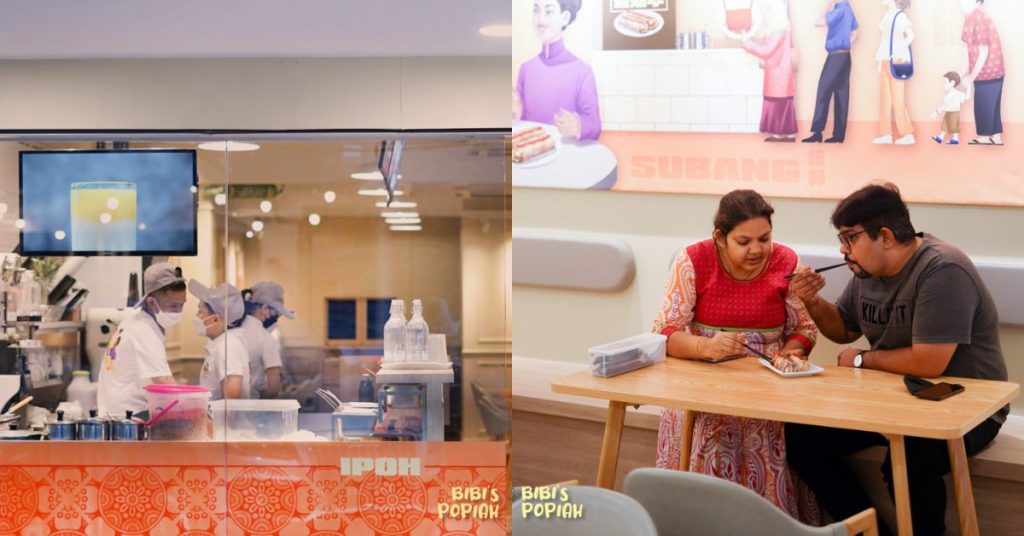
The popiah market, while seemingly niche, is surprisingly large, according to the sisters. “For us, it’s not about competing with others. We want to build a community that appreciates this traditional cuisine.”
Popiah might not have the glamour of sushi or the universal appeal of pizza, but it’s a dish with deep cultural roots and immense potential. What Bibi’s Popiah is doing is modernising the offering without losing tradition.
The luxury popiah might grab headlines, but the real triumph lies in how this second-generation business is preserving heritage while making it relevant for younger audiences.
- You can learn more about Bibi’s Popiah here.
- Read other articles we’ve written about Malaysian startups here.
Also Read: This Microsoft Copilot workshop convinced me that AI can help content creators, here’s how
Featured Image Credit: Perly Yuen (R) and her mom (L)
Would you like to try working abroad? S’pore MOM will pay up to 70% of your salary if you do.
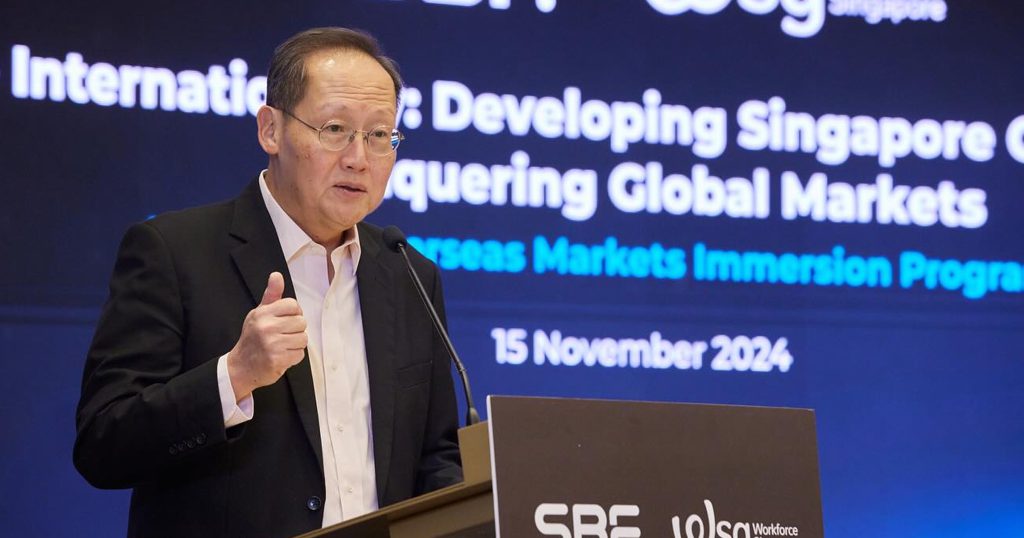
Disclaimer: Unless otherwise stated, any opinions expressed below belong to the author.
Of course there are caveats to the offer (more on them in a second, but in a globalised world, gaining international experience at work is a prerequisite to career progression—especially in a place like Singapore, whose economy depends on its links with the rest of the planet.
However, getting that experience is not easy, as it requires leaving your country in search of opportunities abroad, which is both risky and difficult.
On the other hand, without a foreign stint in your CV, you are bound to hit a ceiling in any major company but since it’s an investment to send an employee abroad, not everybody can hope to qualify.
Well, this is now being made easier with the Overseas Markets Immersion Programme (OMIP) announced by the Ministry of Manpower last week.
Under the scheme, the government will cover up to 70% of your monthly salary (capped at S$5,000) and just as much of monthly relocation allowance (capped at S$3,000) for nine months if your company qualifies.
That’s a maximum of S$72,000, which should incentivise businesses to send Singaporeans abroad provided that the company has such an ability (the scheme is available to citizens and PRs with little to no experience in the target market).

Yes, the main caveat is that you can’t just go by yourself—you have to be sent by your employer, though in Singapore, it still applies to a significant portion of the society.
Qualifying criteria
The requirements for participation are, fortunately, not overly restrictive and are meant to merely ensure that the programme serves its purpose and is not a taxpayer-paid trip with little impact on your job.
“The OMIP supports companies that are interested in overseas expansion to reskill employees with little to no overseas experience in the market, supporting companies to invest in their employees’ development and ultimately enhance the companies’ global mobility.”
Participating companies must be:
- Registered or incorporated in Singapore
- Committed to work with Workforce Singapore or its appointed partner on the necessary administrative matters related to the programme
- Have clear market expansion/business transformation plans with defined KPIs
- Develop a training plan addressing skill/knowledge gaps for the target market
As for individuals, there are two paths to follow: one for new hires in the middle of their careers and another for current employees that the company wishes to invest in.
Eligibility criteria for mid-career individuals (new hires):
- In full-time permanent or contract position, with a minimum fixed monthly salary of at least S$4,000
- Clearly defined job role for the identified market, with delineated differences from previous roles
Eligibility criteria for job redesign re-skilling (existing employees):
- In full-time permanent or contract position, with a minimum fixed monthly salary of at least S$4,000
- Employed by the company for at least one year at the time of application
- Detailed career development plan outlining progression over 24 months, along with quantifiable short-term KPIs to be achieved after training
- Identified business-related short-term KPIs and outcomes post-training
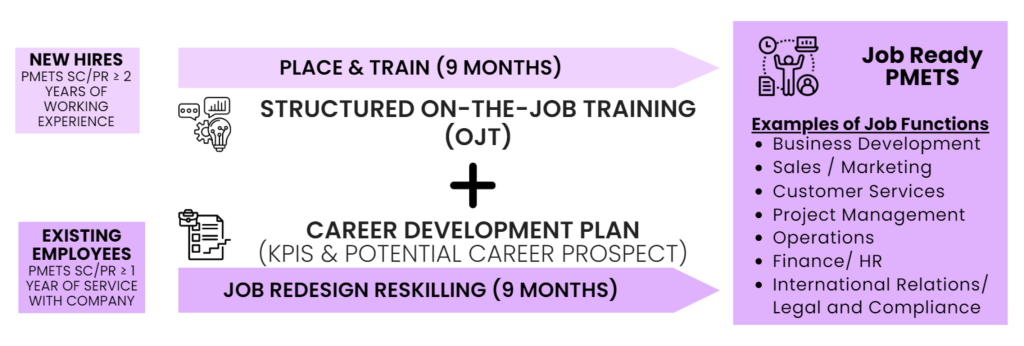
Your employer will work with the Singapore Business Federation to create customised training plans which include on-the-job training, optional classroom training, or both, depending on the company’s requirements. At least six months must be based overseas (one identified country) on relocation basis.
To succeed in Singapore, you should leave it first
I come across complaints about foreign employees outranking local Singaporeans quite often, which seems to breed resentment against expatriates. The reality is, however, that to succeed in Singapore—at least when it comes to international corporations—you have to leave it first.
Now, this may seem to be a paradox, but the reason for it is that none of the big companies have come to the city-state to do business here, but rather, to use it as a hub to do business everywhere else.
The local market is relatively small so, no matter how much experience you have, it’s usually not enough to be of major contribution to your employer. There’s a limit that only leaving the country before returning to it can remove.
To that end, spending nine months abroad should be a major boost, as it’s long enough to be meaningful but not so long as to lead to your detachment from Singapore.
Plus, I think it could also help the participants to appreciate just how good living and working here is compared to just about every other location on the planet. That alone can impact your perspectives—both at work and your personal life—very significantly.
Most importantly, the programme should genuinely help all Singaporeans whose ambition is to get promoted to a major position in a global business, but who have not had this chance earlier in their career or believe they were passed over by a foreign colleague.
A 70% salary subsidy is going to be hard to ignore by your employer, providing major advantage over expatriate hires.
If both you and your company qualify, you should seek to take advantage of the offer, as it’s the most significant boost to your resume you can add in the middle of your career.
- Read other job-related articles we’ve written here.
Also Read: Singapore’s highest-demand careers: MOM releases the 2025 list of talent-starved jobs
Featured image: Dr Tan See Leng / Facebook